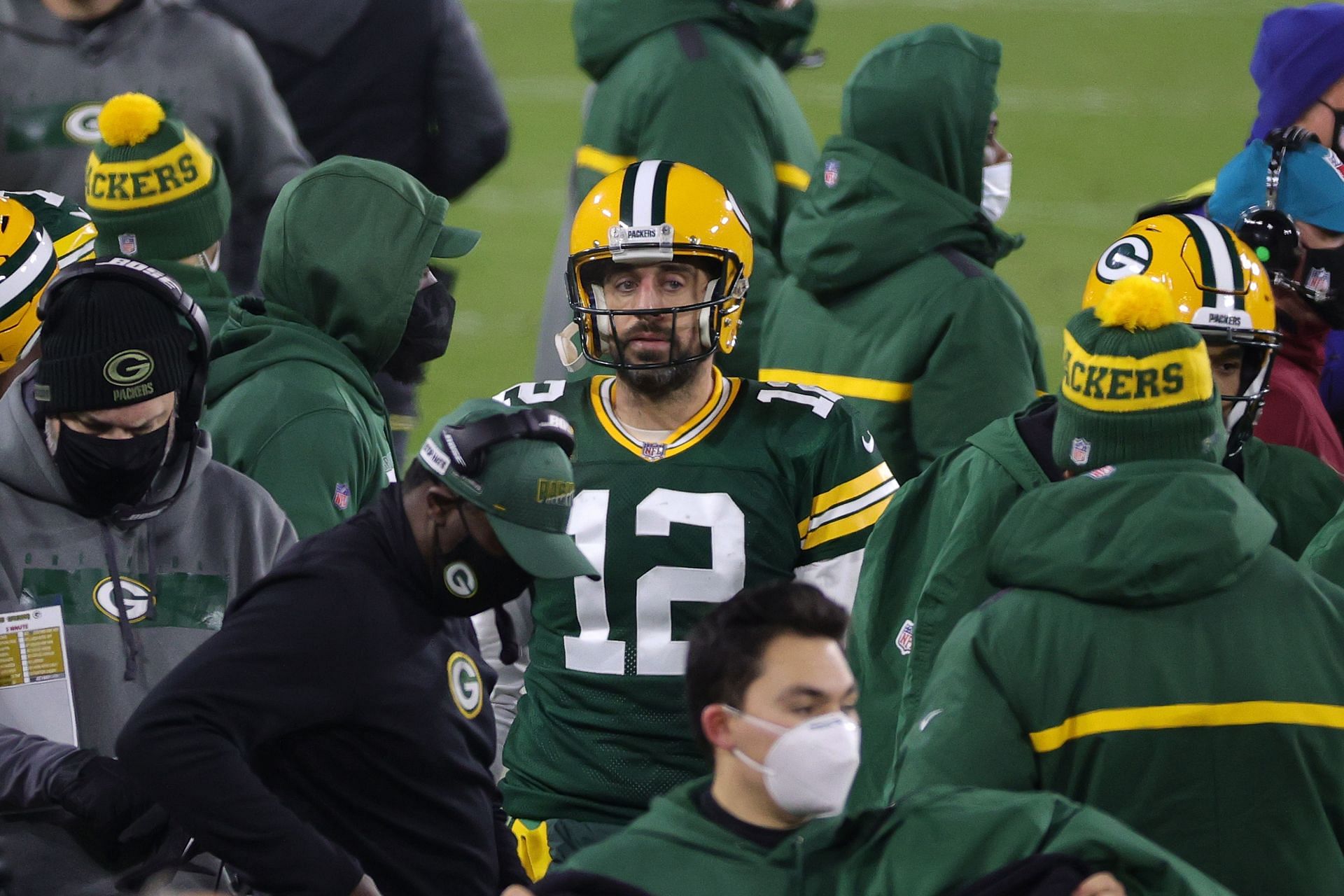Green Bay Packers quarterback Aaron Rodgers spoke publicly for the first time after testing positive for COVID-19 on Wednesday and receiving huge backlash for violating NFL protocols for unvaccinated players. He made an appearance on The Pat McAfee Show to explain his side of the story and why he didn't take the vaccine.
Most of the reasons he gave as to why he didn't take the shot were absurd, but not all of them. Rodgers said that he is allergic to one of the ingredients used in the mRNA vaccines (Moderna and Pfizer), and there's an official recommendation not to take these two vaccines, which share a similar makeup, if you're, in fact, allergic to some of their ingredients.
What vaccine ingredient is Aaron Rodgers allergic to?
Rodgers didn't get deep into what vaccine ingredient could've caused him a problem if he did take the shot; instead, he said that he took Ivermectin to fight COVID-19 after listening to a recommendation on The Joe Rogan Experience podcast.
Looking to predict NFL playoff Scenarios? Try our NFL Playoff Predictor for real-time simulations and stay ahead of the game!
"[The CDC website] says, should you have an allergy to any of the ingredients, you should not get one of the mRNA vaccines. So those two (Moderna and Pfizer) were out already," Rodgers said. "I consulted a good friend of mine, Joe Rogan, and I've been doing a lot of the stuff he recommended in his podcast."
There is, in fact, a CDC recommendation for people who have allergic reactions not to take the mRNA vaccines, but there's also the official recommendation for those people to take the Johnson & Johnson vaccine, which uses the traditional model of vaccine building (a small, inoffensive part of the virus is injected into the body to create antibodies). So why didn't Rodgers take the Johnson & Johnson vaccine instead?
"In April, the J&J vaccine got pulled due to clotting issues. So the J&J vaccine was not an option at that point."

The percentage of cases reported from people who have taken the Johnson & Johnson vaccine who have developed blood-clotting issues is 0.00031%, and when it was pulled, it was reinstated for use ten days later. If you do catch COVID-19, the chances of your body developing blood-clotting issues are much, much higher. One of the main symptoms and long-term issues of COVID-19 is inflammation.
Simply put, if Rodgers is, in fact, allergic to the other vaccines because of their mRNA makeup, he could've simply taken a vaccine that doesn't use the same process, and there were options available. He decided to remain unvaccinated, lied about it, violated protocols for unvaccinated players and created a huge problem for the Packers. It's not the smartest thing to do in a season where the race for the NFC crown is so tight.
Green Bay Packers Fans! Check out the latest Packers Schedule and dive into the Green Bay Packers Depth Chart for NFL Season 2024-25.
